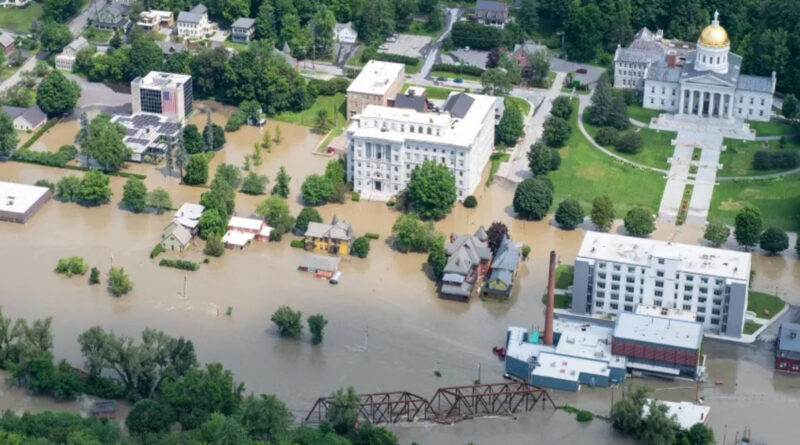The US Administration has filed a lawsuit against the state of Vermont, challenging the legality of its recently enacted Climate Superfund Act. This legislation, passed in May 2024, allows Vermont to hold fossil fuel companies financially accountable for climate change impacts within the state. Officials argue that the federal government’s legal action undermines state rights and threatens local efforts to address environmental challenges.
According to Vermont’s treasurer, Mike Pieciak, the Climate Superfund Act is crucial for funding climate adaptation projects. He stated, “To support the health, safety, and prosperity of our communities, we must ensure Vermont is equipped financially to address the impacts of climate change.” The state has faced significant challenges, including widespread flooding, which has disproportionately affected vulnerable communities.
Vermont Secretary of Natural Resources Julie Moore emphasized the importance of the legislation, noting the tangible effects of climate change on both the environment and the economy. She mentioned that the state is committed to learning from experts to ensure fossil fuel companies are held accountable for their contributions to climate-related damage.
On September 15, 2023, the federal government filed the lawsuit in Vermont’s federal district court, seeking to invalidate the state law. The complaint describes the Climate Superfund Act as a “lawless experiment” that conflicts with US foreign policy and regulates actions beyond Vermont’s borders. The federal government has called for a summary judgment, suggesting its position is clear-cut and does not require further legal debate.
This legal move follows earlier lawsuits filed by the Justice Department and the Environmental Protection Agency (EPA) against both Vermont and New York. Both states have adopted similar legislation based on the principle that polluters should bear the costs associated with climate change.
Advocates for the Vermont law, including Paul Burns, executive director of the Vermont Public Interest Research Group, argue that the law is essential for holding fossil fuel companies accountable for the damage they have caused. Burns stated, “This law is about holding Big Oil accountable for a portion of the damage it has already brought to Vermont’s farms, businesses, homeowners and communities.”
Further support for the legislation comes from organizations like the Northeast Organic Farming Association of Vermont. Grace Oedel, the executive director, remarked, “Vermont clearly has the right to raise funds and protect the well-being of its people.” She indicated that the law is necessary to fund critical adaptations for the state’s agricultural sector, particularly in the face of worsening climate conditions.
Research increasingly links specific fossil fuel emissions to extreme weather events. A recent study published in the journal Nature highlighted that climate change has intensified over 200 heat waves from 2000 to 2023, with emissions from 180 fossil fuel and cement producers significantly contributing to these events.
In addition to the lawsuit, the federal administration has canceled more than $62 million in federal funds for solar projects in Vermont, raising concerns about the administration’s commitment to supporting renewable energy initiatives.
Environmental advocates, including Kate Sinding Daly of the Conservation Law Foundation, have pledged to defend Vermont’s Climate Superfund law. Daly stated, “This is Vermont using its legal right to raise revenue and protect the health, safety, and well-being of its residents from the ruinous, inescapable consequences of climate change.”
Critics view the federal government’s actions as an attempt to quash climate accountability efforts and environmental regulations. Earlier this year, an executive order from the Trump administration instructed the Justice Department to halt enforcement of climate Superfund policies, indicating a broader trend against state-level environmental initiatives.
As the legal battle unfolds, Vermont remains committed to its approach to climate change, asserting its rights to protect its citizens and hold accountable those responsible for environmental degradation.
